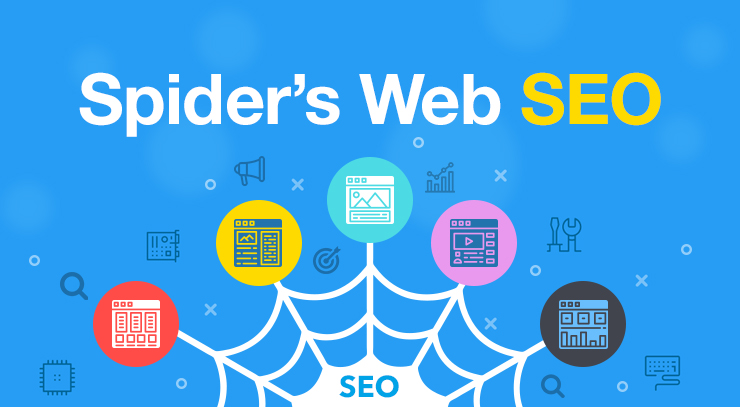SEO is more than ‘simply’ optimizing a page for a specific keyword or creating individual pages. Today’s SEO is all about search intention and authority.
Imagine you are the world’s number one SEO expert. The Michelangelo of the microsite. The Hironimus Bosch of the homepage. You are also an incredible copywriter. And a professional plumber.
With your extensive knowledge and decades of experience you are planning on creating and optimising one of your plumbing website’s pages using the keyword ‘plumbing skills’. Your content is, as always, perfect. The keyword features extensively but not obtrusively. The content is readable, educational, clear and usable.
You add everything a Seurat of SEO could think of. It’s got it all. Testimonials. Images. Personal information. Case studies. Your plumbing page is way better than your top competitor.
So how high do you rank?
You don’t.
In fact, you’re not even on page twenty of the search results. The reason your incredible page isn’t top of the board is two-fold – you didn’t match up with the search intention, and you’re not considered an authority.
Search Intent
You might be the best plumber in the district. The problem is, the searcher isn’t looking for plumbing skills, they are looking for a plumbing service, or a local plumber.
You should have detected this mistake much earlier on by simply looking at the top search results. You’ve been listed for testimonials, case studies, how-to’s, but not for plumbing service or local plumber. So a first page result? Forget it. No matter how good your content is, if the page does not match the search intent, you won’t rank.
In the plumbing example used in this article, you need to optimise your service and product pages with completely appropriate keywords. Keywords that match the need win every single time. Plumber Gold Coast, for example.
Authority
Authority is a long process that needs to be built up. It doesn’t happen overnight and it can’t be done with a single page. A reliable source is just that. A long-term go-to with trustworthy information. And there’s something else to consider. You can only become an authority through other people’s votes.
In SEO language this translates to your pages being shared and referred to on other websites. So who will refer to your plumbing skills page which just happens to be your sales page? Nobody.
It is extremely difficult – if not impossible – to obtain links for sales pages. Can you imagine McDonalds linking to Pizza Hut?
Becoming a bona fide authority
Becoming an authority is possible with the simple spider’s web strategy.
This idea is simple, it makes sense and is nothing new. You build pages that demonstrate your authority and thereby earn you links. You strengthen your pages through internal links, creating a spider’s web of pages – the most important placed centrally with the others coming out of this centre to create a web-like form. Your central page is the one that uses the most popular keyword. So plumbing services. This also happens to be your product.
The first layer of the web that emits from the centre page concerns basic needs – the plumbing services you provide and the areas you provide them in. This information is split into multiple pages, all of them linking to the centre page.
The next layer proves your authority on the subject. These are the pages that can earn you links from other sources.
The third and final layer is formed by your own links to other authorities. External links to correct, up-to-date and interesting information. These strengthen your web through their interconnections with your own content. These pages can also respond to much more specific searches, like “how do I fix a dripping tap” or link to official websites, such as WorkSafe. The third layer can also include shared items like other people’s blog articles, manuals, trends, tips, and interviews.
Where does a spider’s web trap the most flies?
You won’t catch flies in the centre of your web. It’s simply not sticky enough. This is because most searchers are not yet ready to hire your plumbing service. They are comparing and exploring their options.
If you serve their needs, you will build up an air of authority. This is where your sticky pages come in – the layers that emit from the centre. Through this information and an easier route to your site visitors get to know you and trust you. They recommend you to friends, followers and acquaintances. And they commit to you, your company and your vision.
That means that when the pipes start clanging, they know exactly where to find you.
Turning the strategy into a plan
Any strategy comes hand-in-hand with a plan. Every plan begins with research. Your first goal is to find topics that respond to specific search needs, are linkable to other sources, can be shared and, if at all possible, fulfill all of these at once. You can find these topics using keyword, competition, target-group and content analyses.
You will need to be flexible, although your goal will remain the same. After all, target groups are not as predictable as we would like to believe. Experimentation is the key, as is adjusting to trends, responding to the latest innovations, commenting on interviews, updating manuals, adding a vlog series by either yourself or a knowledgeable and trusted external source, and including your recent case studies. Then it’s time to test them. Do these additions actually make a difference?
This plan enables you to become an authority on other websites. It’s not an overnight process but a long-term road to success. Once you’ve built up a following and treat your visitors right, they won’t go away. Authority comes hand in hand with recognition. If you’re not out there, you’re not visible. This can be done by giving interviews or interviewing others, publishing guest blogs, leaving comments that are helpful (and not overly critical and definitely not rude), creating a series of how-to videos, public speaking or even writing a book. Every actor knows the trick. If you’re not out there, you’re forgotten.
Logical linking
All roads lead to your centre page and all pages should be linked logically. Adding a link to a gardening page, no matter how good, is not a logical move and makes your plumbing website distinctly user-unfriendly.
Linking to the main page is easy. All of your pages will have one main topic in common. But linking to related pages is only done when this is appropriate and adds value. Not to mention, external links are notoriously unpredictable when it comes to traffic. Many great pages don’t get a look while mediocre ones rocket through the rankings, usually very temporarily.
Fat, happy spider
It takes a long time to build up an authoritative presence online. It takes just as much work holding on to this reputation, especially when your competitors start to copy your strategy. In the spider’s web, there’s no time to sit back on your laurels and watch the flies come in; if it’s all too much to keep up with, find a good marketing and design agency and tell them to work according to the spider’s web strategy. The good ones will know exactly what you are talking about.


 1300 353 700
1300 353 700 info@magiknewmedia.com.au
info@magiknewmedia.com.au

















